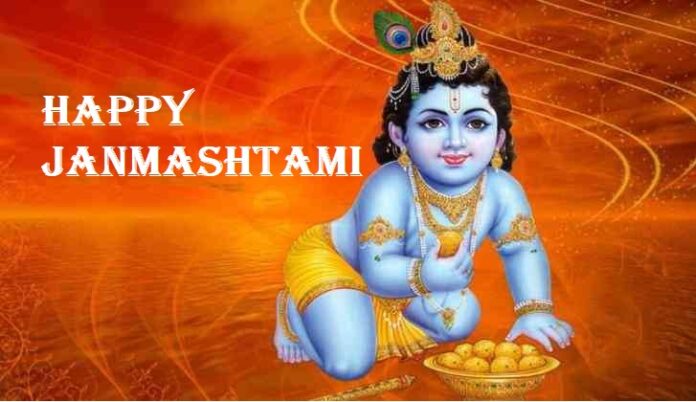Krishna, the Bhagavad Gita’s great exponent, is one of the most powerful incarnations of Vishnu, the Godhead of the Hindu Trinity of deities. He is the most popular of all Vishnu avatars, and perhaps the one closest to the hearts of the masses of Hindus. Krishna was dark and extremely attractive. The word Krishna literally means “black,” and black also connotes mystery.
Krishna is revered as a leader, hero, protector, philosopher, teacher, and friend all rolled into one. Krishna influenced Indian thought, life, and culture in a variety of ways. Not only has he influenced its religion and philosophy, but also its spirituality and literature, painting and sculpture, dance and music and all aspects of Indian folklore.
JOURNEY: Krishna was born at midnight on Ashtami, the eighth day of the Krishnappa’s, or dark fortnight, in the Hindu month of Shravan (August-September). Krishna’s birthday is known as Janmashtami, and it is a special occasion all over the world. Krishna’s birth is a spiritual phenomenon that inspires awe among people and overwhelms one.
Mother Earth, unable to bear the burden of sins committed by evil kings and rulers, sought assistance from Brahma, the creator. In turn, Brahma prayed to the Supreme Lord Vishnu, who assured him that Vishnu would soon return to Earth to destroy tyrannical forces.
Kamsa, the ruler of Mathura (in northern India), was one such ruler who imparted fear in the hearts of all rulers. A voice from the sky predicted that Kamsa’s sister Devaki’s eighth son would destroy Kamsa on the day Devaki married Vasudeva.
Fearful, Kamsa imprisoned the couple and vowed to kill any child Devaki had. He kept his word, killing the first seven children Devaki bore Vasudeva, and the imprisoned couple feared their eighth child would be killed as well.
Lord Vishnu appeared before them, promising to return to Earth as their son and rescue them from Kamsa’s tyranny. When the divine child was born, Vasudeva was magically released from prison and fled to a safe house with the infant. Vishnu removed obstacles from Vasudeva’s path along the way, such as snakes and floods.
Vasudeva gave the newborn Krishna to a cowherd family in exchange for a newborn girl. Vasudeva and the girl returned to the prison. When Kamsa learned of the baby’s birth, he rushed to the prison to murder it. When he arrived, however, the baby climbed to the heavens and became the goddess, Yogamaya. She warned Kamsa that his adversary had already been identified.
Meanwhile, Krishna was raised as a cowherd and had a happy childhood. As he grew older, he developed into a skilled musician, wooing the women of his village with his flute playing. He eventually returned to Mathura, killing Kamsa and his men and restoring his father to power.
Krishna then came to the aid of a clan of Yadava chiefs who had been deposed by the king of Magadha, Jarasandha. He easily defeated Jarasandha’s multi-million army by constructing an impregnable capital Dwarka, “the many-gated” city on an island in the sea. According to the epic Mahabharata, the city on Gujarat’s western tip is now submerged in the sea. According to legend, Krishna used the power of his yoga to transport all of his sleeping relatives and natives to Dwarka. He married Rukmini in Dwarka, then Jambavati and Satyabhama. He also saved his kingdom from Nakasura, the Pragjyotisapura demon king who had kidnapped 16,000 princesses.
Krishna spent many years living with the Pandava and Kaurava kings who ruled over Hastinapur. When a war between the Pandavas and the Kauravas was about to break out, Krishna was sent to mediate but failed. When war became unavoidable, Krishna offered his forces to the Kauravas and agreed to join the Pandavas as the master warrior Arjuna’s charioteer. The epic battle of Kurukshetra, described in the Mahabharata, took place around 3000 BC. In the midst of the conflict, Krishna gave his famous advice, which forms the main thrust of the Bhagavad Gita, in which he advanced the theory of ‘Nishkam Karma,’ or action without attachment.
Krishna returned to Dwarka after the Great War. In his final days on earth, he taught spiritual wisdom to his friend and disciple, Uddhava, and climbed to his place of residence after casting off his body, which had been shot at by a hunter named Jara. He lived for 125 years, according to legend. Whether he was a human or a God-incarnate, there is no denying that he ruled the hearts of millions for over three millennia.
 BY:Anil Kumar
BY:Anil Kumar

Readers like you, make ESHADOOT work possible. We need your support to deliver quality and positive news about India and Indian diaspora - and to keep it open for everyone. Your support is essential to continue our efforts. Every contribution, however big or small, is so valuable for our future.












happy janamashtami to all.
Great reminder of what Krishna means to all of us. Every word he says, every act he does should be part of our ethics. Jai Shri Krishna